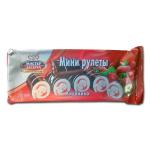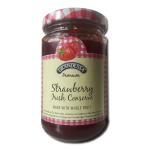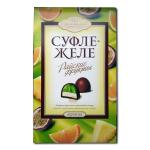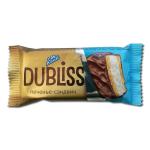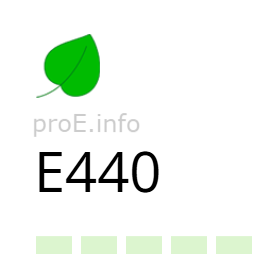
Other names for the additive (synonyms)
General Information
Food additive E440 (Pectins) (from Greek pectos — frozen, coagulated) is a group of structural polysaccharides found in the cell walls of all terrestrial plants and some types of algae. In the food industry, additive E440 is used as a stabilizer, emulsifier, and thickener.
Additive E440 appears as a white to light brown powder with no odor and a mucilaginous taste. Chemically, pectins are complex polysaccharides composed mainly of galacturonic acid residues.
Pectin was first isolated and described in 1825 by French chemist-pharmacist Henri Braconnot during his study of vegetables and fruits. Through experiments with fruit juices and extracts, Braconnot managed to isolate a gelling substance which he named “Pectin”.
The first industrial plants for extracting pectin were established in the 1920s–1930s. Today, additive E440 is obtained from the pomace of citrus fruits, apples, sugar beets, and other plant materials.
Foods richest in pectin content include:
- citrus peels – 30%
- carrots – 1.4%
- apples – 1–1.5%
- apricots – 1%
- oranges – 0.5–3.5%
- cherries – 0.4%
Around 40,000 tonnes of pectin are produced globally each year.
Effects on the Body
Benefits of additive E440
Pectin naturally enters the human body with a regular diet. When consuming about half a kilogram of fruits and vegetables per day, pectin intake may reach up to 5 grams. Pectin passes through the small intestine virtually intact.
Due to its absorbent properties, consuming pectin has medical benefits. Foods high in pectin are recommended to help lower blood cholesterol levels. As it passes through the digestive tract, pectin absorbs cholesterol and harmful substances, which are then excreted from the body. Pectin molecules also bind radioactive and heavy metal ions.
Pectins are an essential part of the diet for people living in polluted environments or working with heavy metals. A preventive daily dose of pectin substances should be around 4 grams. In radiation-exposed conditions, this amount should be increased to at least 15 grams.
The World Health Organization (WHO) and the Food and Agriculture Organization (FAO) have not established an acceptable daily intake (ADI) for pectin, as the additive is considered safe.
Risks of additive E440
Despite its beneficial properties, excessive consumption of pectin or individual intolerance may lead to certain side effects:
- Digestive issues at high doses: bloating, heaviness, diarrhea, or constipation.
- Reduced absorption of nutrients: due to high absorbency, pectins may bind minerals (such as calcium, iron, zinc, magnesium) and remove them from the body, lowering their bioavailability.
- Allergic reactions (very rare): possible in people sensitive to citrus fruits or other pectin sources (apples, beets, etc.).
- Drug interactions: pectins may interfere with the absorption of certain medications in the intestine (e.g., cardiac glycosides, tetracyclines, some antidepressants).
Uses
In the food industry, additive E440 is used as a gelling agent, stabilizer, moisture-retaining agent, and thickener. It is one of the most commonly used additives due to its useful properties and relatively low cost. Additive E440 is used in the production of marmalade, candy, fruit and jelly fillings, dairy products, mayonnaise, marshmallows, ice cream, and many other foods.
Other applications of pectin include:
- in medicine (drugs for regulating digestion, throat-soothing tablets, wound-healing agents, etc.);
- in cosmetics as a stabilizer;
- in cigar manufacturing (used as glue for repairing damaged tobacco leaves).
Legal Status
Food thickener E440 (pectin) is approved for use in most countries worldwide, including the European Union, the United States, and Ukraine. In the EU, the additive is included in the approved list under Regulation (EC) No 1333/2008 of the European Parliament and of the Council. In the United States, pectin is recognized as safe (GRAS — Generally Recognized As Safe) and is listed among the permitted food additives by the FDA.
